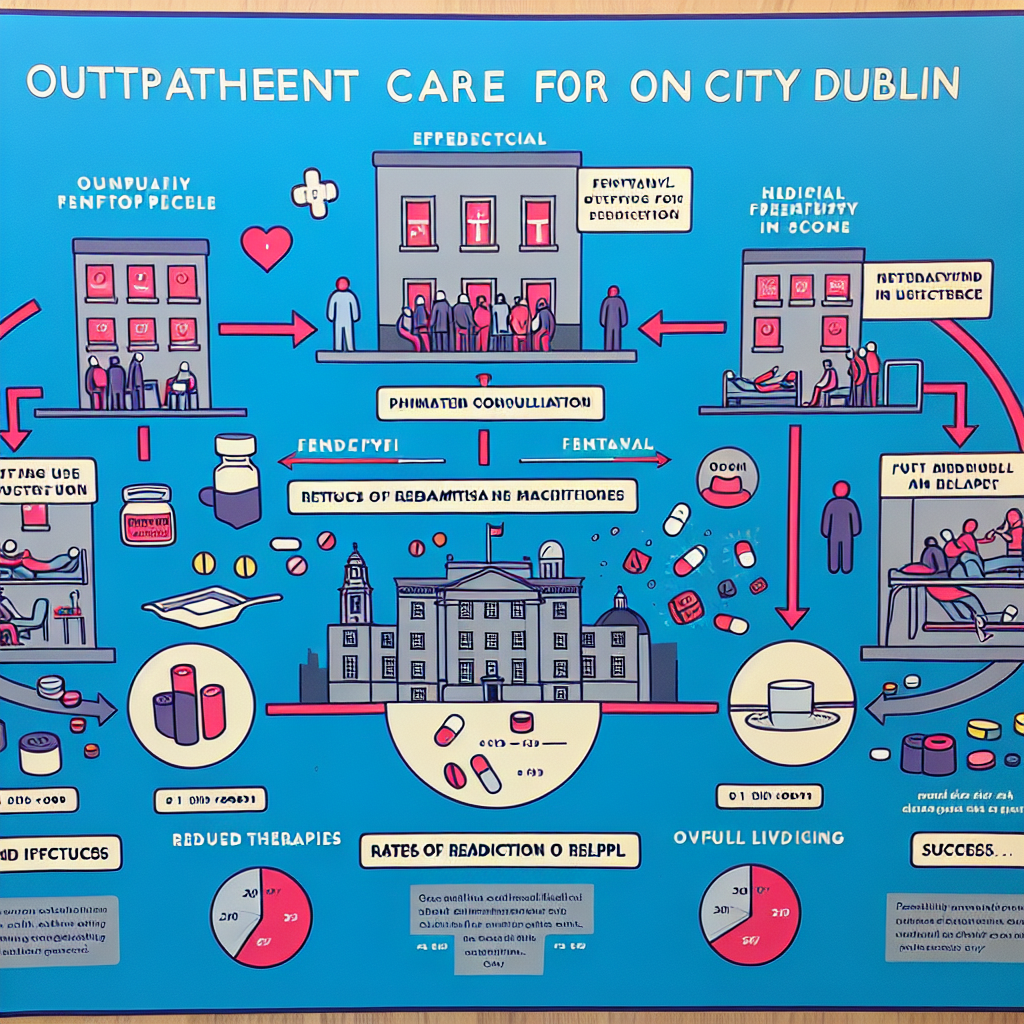-
Table of Contents
“Therapy: Your Pathway to Overcoming Fentanyl Addiction and Reclaiming Life.”
Introduction

Fentanyl addiction is a severe and life-threatening condition that requires comprehensive treatment to overcome. Therapy plays a crucial role in the recovery process, offering a structured and supportive environment for individuals to address the psychological, emotional, and behavioral aspects of their addiction. Through various therapeutic approaches, such as cognitive-behavioral therapy (CBT), motivational interviewing, and group therapy, individuals can gain insight into the underlying causes of their addiction, develop coping strategies to manage cravings and triggers, and build a strong support network. Therapy also helps in addressing co-occurring mental health disorders, improving emotional regulation, and fostering resilience, all of which are essential for long-term recovery and preventing relapse. By providing a safe space for self-exploration and growth, therapy empowers individuals to reclaim their lives from the grip of fentanyl addiction and work towards a healthier, substance-free future.
Cognitive Behavioral Therapy: A Key Tool in Fentanyl Addiction Recovery
Cognitive Behavioral Therapy (CBT) has emerged as a cornerstone in the treatment of fentanyl addiction, offering a structured and effective approach to recovery. Fentanyl, a potent synthetic opioid, has been at the center of the opioid crisis, leading to a surge in addiction and overdose cases. The journey to recovery from fentanyl addiction is fraught with challenges, but CBT provides a beacon of hope, guiding individuals toward a healthier, drug-free life.
At its core, CBT is based on the premise that our thoughts, feelings, and behaviors are interconnected. By identifying and challenging negative thought patterns, individuals can alter their emotional responses and behaviors. This therapeutic approach is particularly beneficial for those struggling with fentanyl addiction, as it addresses the underlying cognitive distortions that often fuel substance abuse. For instance, many individuals with addiction issues harbor beliefs such as “I can’t cope without drugs” or “I’m a failure.” CBT helps in dismantling these harmful beliefs and replacing them with more constructive and empowering thoughts.
One of the primary ways CBT aids in fentanyl addiction recovery is by enhancing self-awareness. Through various techniques, individuals learn to recognize the triggers and situations that lead to drug use. This heightened awareness is crucial, as it allows individuals to anticipate and prepare for high-risk scenarios, thereby reducing the likelihood of relapse. Moreover, CBT equips individuals with practical coping strategies to manage cravings and stress, which are common challenges in the recovery process. Techniques such as mindfulness, relaxation exercises, and problem-solving skills become invaluable tools in maintaining sobriety.
Furthermore, CBT fosters a sense of accountability and responsibility. In therapy sessions, individuals set specific, measurable goals related to their recovery. These goals might include attending support group meetings, engaging in healthy activities, or rebuilding relationships with loved ones. By tracking progress and celebrating small victories, individuals gain a sense of accomplishment and motivation to continue their recovery journey. This goal-oriented approach not only boosts self-esteem but also reinforces the belief that change is possible.
Another significant aspect of CBT is its focus on building a supportive network. Addiction often leads to isolation and strained relationships, but CBT encourages individuals to reconnect with their social support systems. Therapists work with clients to improve communication skills, resolve conflicts, and establish healthy boundaries. This renewed sense of connection can be a powerful antidote to the loneliness and despair that often accompany addiction. Additionally, involving family members in therapy sessions can provide a broader support system, fostering an environment of understanding and encouragement.
While CBT is highly effective, it is often most successful when integrated with other treatment modalities. Medication-assisted treatment (MAT), for example, can help manage withdrawal symptoms and reduce cravings, making it easier for individuals to engage in therapy. Combining CBT with MAT and other therapeutic approaches, such as group therapy or holistic practices, creates a comprehensive treatment plan that addresses the multifaceted nature of addiction.
In conclusion, Cognitive Behavioral Therapy offers a transformative path for those recovering from fentanyl addiction. By addressing the cognitive and emotional aspects of addiction, CBT empowers individuals to break free from the cycle of substance abuse. Through self-awareness, practical coping strategies, goal-setting, and building a supportive network, individuals can reclaim their lives and move toward a brighter, drug-free future. The journey may be challenging, but with the right tools and support, recovery is not only possible but also sustainable.
The Role of Group Therapy in Overcoming Fentanyl Dependency
Group therapy can play a pivotal role in overcoming fentanyl dependency, offering a supportive environment where individuals can share their experiences and learn from others who are facing similar challenges. Fentanyl addiction is a complex and often isolating condition, but group therapy provides a sense of community and belonging that can be crucial for recovery. By participating in group sessions, individuals can break the cycle of isolation and connect with others who understand their struggles, fostering a sense of empathy and mutual support.
One of the primary benefits of group therapy is the opportunity for individuals to share their stories and listen to the experiences of others. This exchange can be incredibly validating, as it helps participants realize that they are not alone in their journey. Hearing about the successes and setbacks of others can provide valuable insights and strategies for managing their own recovery. Moreover, the collective wisdom of the group can offer practical advice and coping mechanisms that might not be available in individual therapy sessions.
In addition to the emotional support, group therapy also provides a structured environment where individuals can learn about the nature of addiction and the specific challenges associated with fentanyl dependency. Facilitated by trained therapists, these sessions often include educational components that help participants understand the physiological and psychological aspects of their addiction. This knowledge can empower individuals to take control of their recovery and make informed decisions about their treatment.
Furthermore, group therapy encourages accountability and responsibility, which are essential components of the recovery process. When individuals commit to attending regular sessions and actively participate in the group, they are more likely to stay engaged in their treatment and adhere to their recovery plan. The group setting also allows for the development of healthy relationships and social skills, which can be particularly beneficial for those who have experienced social isolation as a result of their addiction.
Another significant advantage of group therapy is the opportunity for individuals to practice new behaviors and coping strategies in a safe and supportive environment. Role-playing exercises and group discussions can help participants develop effective communication skills, build self-esteem, and learn how to manage stress and triggers. These skills are crucial for maintaining long-term sobriety and preventing relapse.
Moreover, the sense of camaraderie and mutual support that develops in group therapy can be a powerful motivator for individuals to stay committed to their recovery. Knowing that others are counting on them and that they have a network of people who genuinely care about their well-being can provide the encouragement and motivation needed to persevere through difficult times.
In conclusion, group therapy offers a unique and invaluable resource for individuals recovering from fentanyl addiction. By providing a supportive community, educational resources, and opportunities for personal growth, group therapy can help individuals build the skills and resilience needed to overcome their dependency. The shared experiences and collective wisdom of the group can inspire hope and foster a sense of belonging, making the journey to recovery a little less daunting. Through the power of connection and mutual support, group therapy can be a transformative experience that paves the way for a healthier, more fulfilling life.
How Family Therapy Supports Recovery from Fentanyl Addiction
Family therapy can play a pivotal role in the recovery process for individuals struggling with fentanyl addiction. This powerful approach not only addresses the needs of the person battling addiction but also involves their loved ones, creating a supportive environment that fosters healing and growth. By engaging the entire family unit, therapy can help mend relationships, improve communication, and build a network of support that is crucial for long-term recovery.
One of the primary benefits of family therapy is that it helps to break the cycle of addiction by addressing underlying issues that may have contributed to the substance abuse. Often, addiction is not an isolated problem but rather a symptom of deeper emotional or psychological struggles. Family therapy provides a safe space for individuals to explore these issues, with the guidance of a trained therapist who can facilitate open and honest conversations. This process can lead to a better understanding of the root causes of addiction and help family members develop healthier coping mechanisms.
Moreover, family therapy can help to rebuild trust and strengthen relationships that may have been damaged by the addiction. Fentanyl addiction can create a significant strain on family dynamics, leading to feelings of betrayal, anger, and resentment. Through therapy, family members can learn to express their emotions constructively and work towards forgiveness and reconciliation. This renewed sense of trust and connection can be incredibly empowering for the person in recovery, as they feel supported and understood by their loved ones.
In addition to emotional healing, family therapy also provides practical tools and strategies for managing the challenges of recovery. For instance, family members can learn about the nature of addiction, the triggers that may lead to relapse, and the importance of setting healthy boundaries. This knowledge can help them to provide more effective support and create a home environment that is conducive to recovery. Furthermore, family therapy can teach communication skills that are essential for resolving conflicts and maintaining a positive atmosphere.
Another significant aspect of family therapy is that it helps to reduce the stigma associated with addiction. Many families struggle with feelings of shame and guilt, which can prevent them from seeking help and support. By participating in therapy, families can gain a better understanding of addiction as a medical condition rather than a moral failing. This shift in perspective can reduce feelings of isolation and encourage families to reach out for the resources they need.
Family therapy also emphasizes the importance of self-care for all family members. The stress and emotional toll of supporting a loved one through addiction can be overwhelming, and it is essential for family members to take care of their own well-being. Therapy can provide guidance on how to balance supporting the person in recovery with maintaining their own mental and emotional health. This holistic approach ensures that the entire family is equipped to navigate the recovery journey together.
In conclusion, family therapy is a vital component of the recovery process for individuals struggling with fentanyl addiction. By addressing underlying issues, rebuilding trust, providing practical tools, reducing stigma, and emphasizing self-care, family therapy creates a supportive and nurturing environment that is essential for long-term recovery. The collaborative effort of the entire family can make a significant difference in the journey towards healing and sobriety, offering hope and inspiration for a brighter future.
The Benefits of Individual Therapy for Fentanyl Addiction Recovery
Recovering from fentanyl addiction is a challenging journey, but individual therapy can be a powerful tool in this process. Therapy offers a safe and supportive environment where individuals can explore the underlying causes of their addiction, develop coping strategies, and rebuild their lives. One of the primary benefits of individual therapy is the personalized attention it provides. Unlike group therapy, where the focus is divided among multiple participants, individual therapy allows for a tailored approach that addresses the unique needs and circumstances of each person. This personalized care can be crucial in understanding the specific triggers and patterns that contribute to one’s addiction.
Moreover, individual therapy fosters a strong therapeutic alliance between the therapist and the patient. This relationship is built on trust, empathy, and confidentiality, creating a space where individuals feel comfortable sharing their deepest fears and struggles. This bond can be particularly beneficial for those recovering from fentanyl addiction, as it encourages openness and honesty, which are essential for effective treatment. Through this trusting relationship, individuals can gain insights into their behavior and emotions, which can lead to meaningful change.
In addition to providing emotional support, individual therapy equips individuals with practical tools and strategies to manage their addiction. Therapists often use evidence-based techniques such as cognitive-behavioral therapy (CBT) to help patients identify and challenge negative thought patterns that contribute to their substance use. By learning to reframe these thoughts and develop healthier coping mechanisms, individuals can reduce their reliance on fentanyl and build resilience against future cravings. Furthermore, therapy can help individuals set realistic goals and create actionable plans to achieve them, fostering a sense of accomplishment and motivation.
Another significant benefit of individual therapy is its ability to address co-occurring mental health disorders. Many individuals struggling with fentanyl addiction also experience conditions such as depression, anxiety, or post-traumatic stress disorder (PTSD). These co-occurring disorders can complicate the recovery process, making it essential to treat them alongside the addiction. Individual therapy allows for a comprehensive approach that addresses both the addiction and any underlying mental health issues, promoting holistic healing and long-term recovery.
Moreover, individual therapy can help individuals rebuild their self-esteem and sense of identity, which are often eroded by addiction. Through therapeutic interventions, individuals can explore their values, strengths, and aspirations, rediscovering a sense of purpose and direction. This renewed sense of self can be a powerful motivator in the recovery process, inspiring individuals to stay committed to their sobriety and pursue a fulfilling life.
Additionally, individual therapy can provide valuable support during the various stages of recovery. Early in the process, therapy can help individuals navigate the challenges of withdrawal and early sobriety, offering guidance and encouragement. As individuals progress in their recovery, therapy can assist in addressing any setbacks or relapses, helping them to learn from these experiences and continue moving forward. Throughout the journey, therapy serves as a consistent source of support, helping individuals stay focused on their goals and maintain their progress.
In conclusion, individual therapy offers numerous benefits for those recovering from fentanyl addiction. By providing personalized care, fostering a strong therapeutic alliance, equipping individuals with practical tools, addressing co-occurring disorders, rebuilding self-esteem, and offering ongoing support, therapy can play a crucial role in the recovery process. While the journey to sobriety is undoubtedly challenging, the transformative power of individual therapy can inspire hope and facilitate lasting change.
Q&A
1. **Question:** How does cognitive-behavioral therapy (CBT) assist in recovering from fentanyl addiction?
**Answer:** CBT helps by identifying and changing negative thought patterns and behaviors associated with drug use, teaching coping strategies, and preventing relapse.
2. **Question:** What role does group therapy play in fentanyl addiction recovery?
**Answer:** Group therapy provides peer support, reduces feelings of isolation, and allows individuals to share experiences and strategies for overcoming addiction.
3. **Question:** How can family therapy contribute to the recovery process from fentanyl addiction?
**Answer:** Family therapy improves communication, resolves conflicts, and strengthens the support system, which is crucial for long-term recovery.
4. **Question:** Why is motivational interviewing effective in treating fentanyl addiction?
**Answer:** Motivational interviewing enhances an individual’s motivation to change by resolving ambivalence and encouraging commitment to recovery goals.
Conclusion
Therapy can play a crucial role in recovering from fentanyl addiction by addressing the psychological and behavioral aspects of the addiction. It provides a structured environment for individuals to explore the underlying causes of their substance use, develop coping strategies, and build a support network. Cognitive-behavioral therapy (CBT) helps in identifying and changing negative thought patterns and behaviors, while other therapeutic approaches like contingency management and motivational interviewing can enhance motivation and reinforce positive changes. Group therapy and family therapy offer additional support and help in rebuilding relationships. Overall, therapy aids in fostering long-term recovery and preventing relapse by equipping individuals with the tools and support needed to maintain sobriety.



